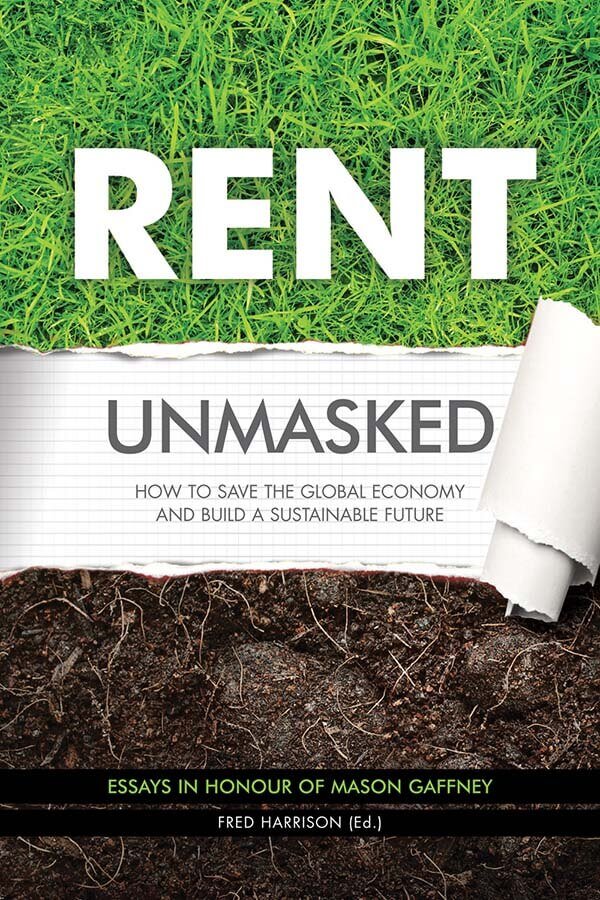Over the last year or so there have been a number of articles broaching the subject of land-value taxation in the national press. The Economist (9th August) even suggested ‘The time may be right for land-value taxes’, but there is also much misunderstanding about that a land-value tax (LVT) is.
In the first place it is not a tax. A tax was defined by Hugh Dalton, later Chancellor of the Exchequer, in his Principles of Public Finance as “a compulsory contribution imposed by a public authority, irrespective of the amount of service rendered in return”. An example will illustrate: the Jubilee Line extension to the London Underground system cost the taxpayer £3.5 billion. Millions of taxpayers will not benefit from their contribution to its cost as they will never use it. Those who use it for their daily commute or to go shopping pay for its use through their fares, but the big beneficiaries are the land owners along the route. They will have contributed to the cost as all other taxpayers, but the huge uplift in value of their land within a 100 metre radius of the 11 stations along the line was estimated to have been £13.5 billion. Properties beyond the 100 metre radius would also have benefited, but progressively less the further they were from the stations. The cost was born by all taxpayers but the ‘service rendered’ was not reaped in proportion to ‘contribution’. This is the nature of a tax.
With a Land-Value Tax (it is more accurate to regard it as an annual ground rent) there would be an equivalence between ‘contribution’ and ‘service rendered’ – the greater the services received, the higher the contribution. The ground rent is a market estimation of the value of all the services rendered at the site. For example, the existence of a good school in a neighbourhood will increase property prices in exactly the same way as proximity to a station. The amount is determined by the market, not arbitrarily by government. LVT is therefore not a tax but a payment for services rendered.
LVT differs from taxes in another respect. It does not distort economic activity. Some taxes, the so-called ‘sin taxes’ on tobacco, spirits and petrol, are introduced with the deliberate intent of discouraging certain behaviour by making it more expensive, but all taxes have this negative effect. They reduce economic activity. For example Stamp Duty discourages people from downsizing and affects adversely labour mobility. VAT inflates prices by 20%, thus reducing sales and affecting the viability of small businesses.
LVT is virtually impossible to avoid, thus making the whole tax avoidance industry unnecessary, This includes the so-called ‘black economy’, the odd-job people who are paid in cash to avoid income tax and VAT, It would not matter whether you worked as an employee or freelance as you would not be taxed on your income. Your contribution to the upkeep of society would depend on where you lived and worked. Living in the country would be cheaper unless it was near a commuter station. Likewise you would pay less running a business in the country, reducing the concentration of population in big cities.
With LVT the way for government to increase its income would be to improve services, a virtuous circle whereby improved services made an area more attractive to live or work in, thereby increasing ground rents to pay for the new services, making the improvements self-financing.
Introducing LVT is often thought of as adding yet another tax. Instead it is substituting a fairer and more efficient way of funding government. It is naturally progressive and would over time render income redistribution unnecessary. As the Nobel economist Joseph Stiglitz pointed out in a debate with Thomas Piketty in Paris in 2015:
‘The underlying problem is the whole structure of our economy, which has been oriented more at increasing rents than increasing productivity and real economic growth that would be widely shared in our society.
‘There are actually a lot of policies one should think about, but one has always to think about issues of shifting so that, for instance, just a tax on capital might be shifted, and a lot of the models have shown this would happen, but a tax on land, rents, would actually address some of the underlying problems. This is the idea that Henry George had more than a hundred years ago, but this analysis that I have done, goes one step beyond Henry George. He argued that a land tax was non-distortionary, but this analysis says that a land tax actually improves productivity of the economy because you encourage people to invest in productive capital rather than into rent generating. Well, the result of the shift in the composition of the savings towards more productive investment leads to a more productive economy, and in the end leads to a more equal society.’







